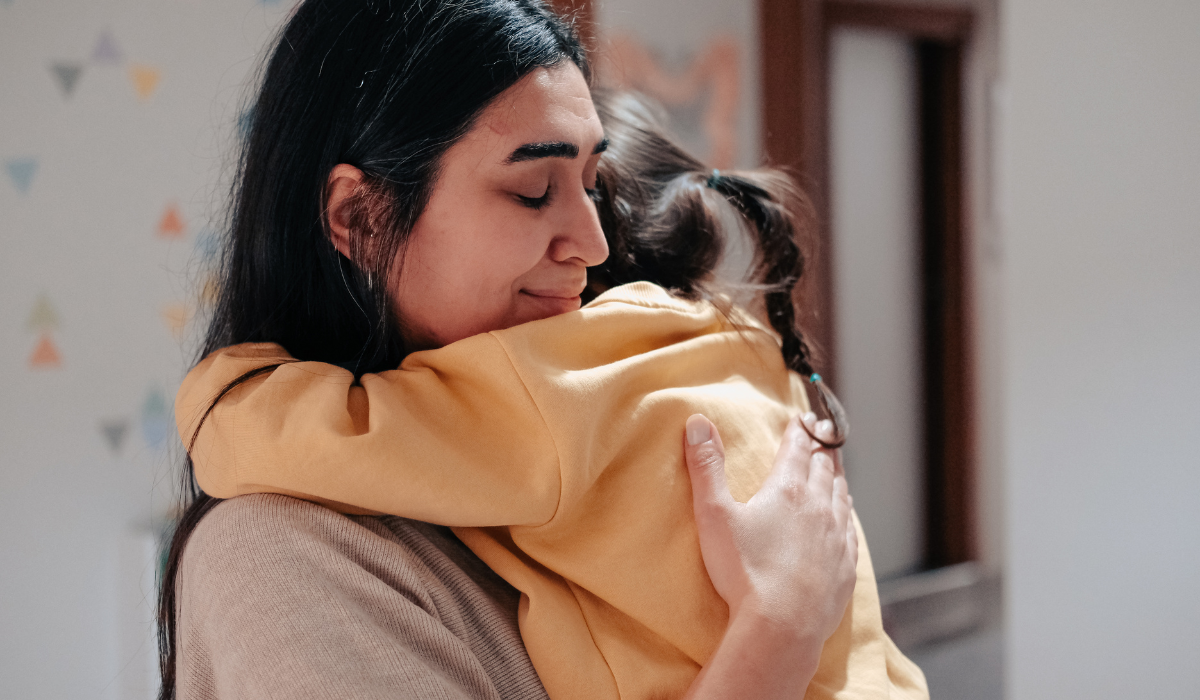Every hug is a heart-to-heart conversation without words.
Hugs have an incredible ability to convey love, warmth, and security. As a parent, you likely cherish those precious moments when you hold your child close. But did you know that the power of a hug goes beyond just a heartwarming feeling? It turns out that the more you hug your kids, the more their brain develops.
The Science of Hugs: To truly appreciate the impact of hugs on your child’s brain development, it’s essential to understand the science behind it. Human touch, including hugging, triggers the release of a hormone called oxytocin, often referred to as the “love hormone” or “bonding hormone.” Oxytocin plays a vital role in creating emotional connections, trust, and social bonding.
Enhancing Emotional Intelligence: Hugging your child frequently helps them develop emotional intelligence. By experiencing and recognizing various emotions through your hugs, they learn to empathize and communicate their feelings better. This emotional awareness sets the foundation for healthy relationships in the future.
Reducing Stress and Anxiety: Hugs have the incredible ability to reduce stress and anxiety. When you hug your child, it decreases the production of cortisol, the stress hormone, and helps them feel secure and calm. This sense of safety allows their brain to focus on learning, exploring, and growing.
Boosting Self-Esteem: Regular hugs from parents can significantly impact a child’s self-esteem. Feeling loved and valued through physical affection helps them build a positive self-image. As a result, they are more likely to engage in activities, set goals, and work towards their dreams with confidence.
The Hugging Routine:
Incorporating daily hugs into your routine is a simple yet powerful way to support your child’s brain development. Here are some tips on how to make the most of these special moments:
Morning Hug: Start the day with a warm embrace. A morning hug is a beautiful way to set a positive tone and create a strong connection before the day begins.
After-School Hug: Welcome your child back home with an enthusiastic hug. It’s a great opportunity to ask about their day and show your support.
Bedtime Hug: End the day with a calming bedtime hug. It helps your child relax, feel secure, and promote peaceful sleep.
Hug Just Because: Don’t wait for a specific time; give your child a spontaneous hug just because you love them. These unexpected moments create lasting memories.
The Profound Impact on Brain Development: Hugs are not only heartwarming but also brain-boosting. The emotional connection created through frequent hugging helps the brain develop in several ways:
- Neurological Development: Hugging stimulates the release of oxytocin, which enhances neural connections in the brain, especially in areas related to emotional regulation and empathy.
- Stress Reduction: Reduced cortisol levels due to hugging lead to less stress and anxiety. A less stressed brain can absorb new information more effectively and is better at problem-solving.
- Emotional Resilience: Regular hugs teach children to handle and understand their emotions. This emotional intelligence is a critical aspect of brain development and healthy relationships.
- Positive Self-Image: Feeling loved and secure through hugs encourages a positive self-image, which translates into better self-esteem. A child with higher self-esteem is more motivated to explore and learn, thus contributing to cognitive development.
The power of hugs goes far beyond mere physical contact; it has a profound impact on your child’s brain development and overall well-being. Hugs are more than simple gestures; they are the building blocks of a healthy and vibrant brain. So, keep hugging, because the more you do, the more you’re enriching your child‘s life and future.
Happy Parenting
